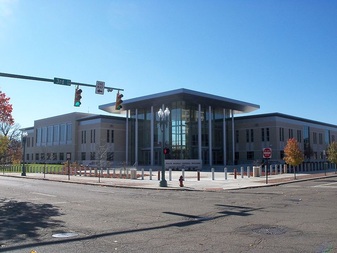Bankruptcy
Most individuals file for one of two types of bankruptcy: Chapter 7 or Chapter 13. Our office will help you determine which one to file, as it depends on your income and the assets you wish to keep. Please read below for more information.
|
Chapter 7
Chapter 7 bankruptcy, also called liquidation, is the most common type of bankruptcy and completely eliminates your dischargeable debts forever. Individuals who qualify for Chapter 7 bankruptcy have proven to the court that they have no realistic way to repay their debt over the course of the next three to five years. With careful planning a Chapter 7 debtor is legally excused from having to repay any unsecured debts, and most debtors are able to keep all of their assets. Typically it takes a total of about four months for a Chapter 7 bankruptcy case to be filed and discharged.
Certain debts usually cannot be cleared through Chapter 7 bankruptcy, such as student loans, child support, alimony, most taxes, and personal injury damages while intoxicated.
Certain debts usually cannot be cleared through Chapter 7 bankruptcy, such as student loans, child support, alimony, most taxes, and personal injury damages while intoxicated.
Chapter 13
When an individual does not qualify for Chapter 7 bankruptcy, he or she is most likely eligible to file for Chapter 13. In most cases, individuals who file for Chapter 13 bankruptcy have suffered from a temporary loss that has put them too far behind in debt to catch up on their own, or to meet the unreasonable demands of creditors. The bankruptcy law is on your side.
Chapter 13 bankruptcy will stop creditors in their tracks immediately. This type of bankruptcy allows you to consolidate debt and restructure it into a monthly payment plan that is affordable to you. Usually people awarded a Chapter 13 judgment make sufficient income to cover their living expenses, but not enough to pay off debts in full or according to the unreasonable demands of creditors. With careful planning with a skilled attorney, a debtor who files for chapter 13 bankruptcy pays for living expenses first, and then money left over is used to repay creditors on very affordable terms, often for just pennies on the dollar.
Chapter 13 bankruptcy cases typically last for three to five years from initial filing to discharge, depending on the individual’s ability to pay.
Chapter 13 bankruptcy will stop creditors in their tracks immediately. This type of bankruptcy allows you to consolidate debt and restructure it into a monthly payment plan that is affordable to you. Usually people awarded a Chapter 13 judgment make sufficient income to cover their living expenses, but not enough to pay off debts in full or according to the unreasonable demands of creditors. With careful planning with a skilled attorney, a debtor who files for chapter 13 bankruptcy pays for living expenses first, and then money left over is used to repay creditors on very affordable terms, often for just pennies on the dollar.
Chapter 13 bankruptcy cases typically last for three to five years from initial filing to discharge, depending on the individual’s ability to pay.
